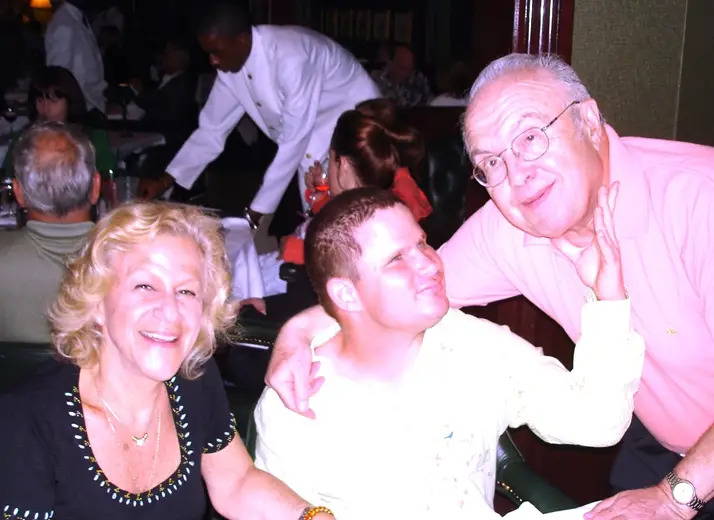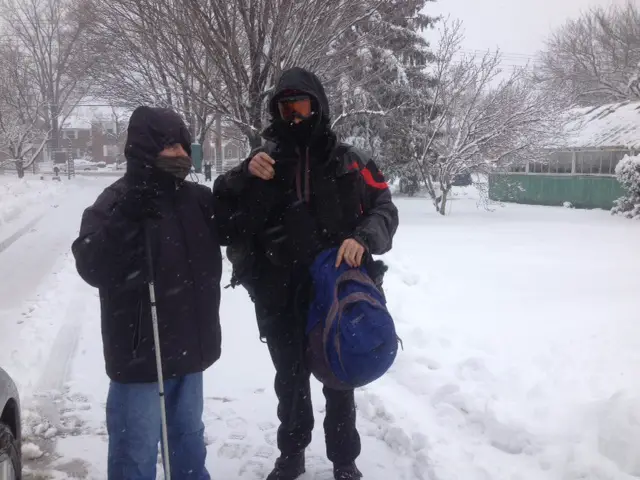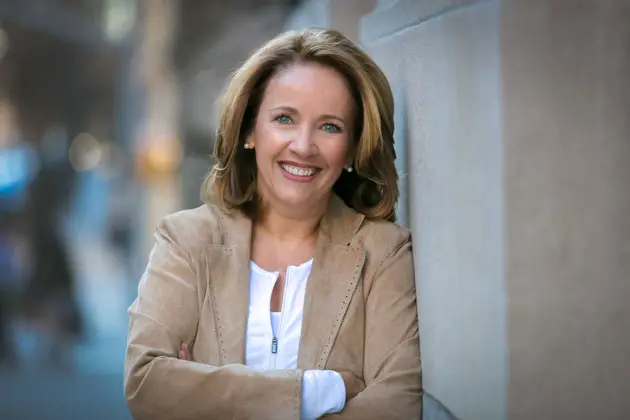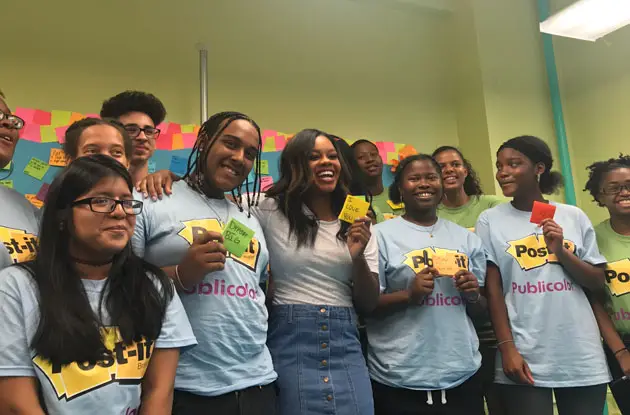Born blind, deaf, and with a developmental disability, Kenny Berg of Queens has defied doctor’s expectations from the start. His fighting spirit, combined with his mother’s passionate advocacy, has set the stage for a life full of independence and love.
|
Kenny Berg (center) with his parents, Clara and Jake Berg |
Kenny Berg has been working at the Queens County Farm Museum in Floral Park for 14 years. He lives in his own apartment, just two blocks from the job. He enjoys swimming and loves spending time with his family.
Kenny is also blind and deaf, and he was born prematurely with a developmental disability. He spent his first eight months in the hospital, where doctors told his parents he wouldn’t survive past his 2nd birthday.
But Kenny’s mother thought otherwise.
“When we went home, all I kept thinking was, He is so beautiful. He’s mine, and I’m going to do the impossible to make his life a happy one,” Clara Berg says.
Today, Kenny is 33 and leading a productive and independent life filled with love.
Berg’s dreams for her son’s adult life began to take shape more than 20 years ago, when she started using person-centered planning, which aims to empower people with disabilities by focusing on their needs and wants as well as those of their families. Berg called the method “a lifesaver” for Kenny: “It changed everything.”
When her son was 11, Berg says, she was asked about his future. “[They asked] ‘What will happen when he’s 21? Where will he live? Where will he work?’ I said, ‘How can I predict that? It’s so far away.’” The response came back quickly: “No Clara, we want you to dream,” they said. “What do you want him to have?’”
Berg envisioned her son living in his own place with a couple who would assist him as needed and love him. She also hoped that he would live close to his parents. After 13 years of seeking a home for him, she now laughs when she looks back at her original plan.
|
Kenny at work at the Queens County Farm Museum |
Kenny’s job as a farmer’s assistant has given him a true sense of purpose, says Dianna Edwards, a senior family services specialist at Manhattan-based YAI. Kenny was one of the first individuals Edwards worked with at the organization.
“He’s a very enthusiastic worker who is always prepared and focused on his work,” Edwards says, adding that Kenny gathers the eggs from the chicken coop and washes, cleans, and processes them. “He’s able to carry out functions of the job with prompts and signs [sign language] from staff.”
When customers purchase eggs, each carton carries a label that reads “collected by Kenny on” with the date—an acknowledgement that makes him proud.
Edwards says working with Kenny and his mother made her reevaluate her job. “I figured since Kenny had a disability and was blind and hearing impaired, there would be limitations to what he could do. I thought, Okay, I’ll have to do this for him and that for him. But his mother taught me to stand back, and whether it was tying his shoe or something else, to let him do things for himself. He just needs the prompt, which may be placing his shoes near his feet, so he can feel them.”
Kenny has what his mother calls “a sixth sense.” It’s the feeling he gets from the energy and environment. “He feels from people when he’s accepted or loved and when they have a different reaction,” she says.
Kenny has forged a wonderful relationship with Joshua Masas, a YAI family service specialist who also has a hearing impairment, over the last year and a half. “Joshua’s reaction and responses to Kenny are more heightened,” Edwards says. “He picks up on things immediately, such as Kenny’s body language. And at the end of a workday, they have something to eat, maybe do something recreational, like tossing a ball. That’s when Kenny starts laughing. There’s definitely some male bonding going on.”
For Edwards, Kenny will always be a barometer to gauge expectation. “I cannot think of one aspect of Kenny’s life that isn’t fulfilling,” she says. “He’s working. He’s living in his own apartment and going about a daily routine. Recreationally, he vacations with his parents and spends time with family on the weekend. He’s leading an entirely fulfilling life.”
A Mother’s Wisdom
Clara Berg shares what she’s learned about raising a child with a disability.
Your child is your child—love him or her.
Trust your intuition. Think positive and have high expectations. The worst thing we can do as parents is say, “How am I going to deal with today?” Try thinking that today is going to be a good day. The power of being positive comes from ourselves—it comes from inside. And positive thinking yields positive outcomes. Of course, there will be particularly challenging times, but you have to say, “It’s just a period, it will pass, and things will go back to being okay.”
Believe in the power of love and nurturing. I believe in healthy habits and relying less on medicine.
Educate yourself. I began volunteering at the New York Deaf-Blind Collaborative when Kenny was about 6. That ended up becoming a job. I’ve been a family specialist there for the last 25 years.
Develop a very, very thick skin. Don’t let people tell you “no.”
Dianna Edwards’s Lessons for Caregivers:
Keep an open mind. Don’t go in thinking this person can’t do things. Determine what they can do and focus on those abilities. You’ll be pleasantly surprised.
Establish a sense of purpose. Not everyone has to be working like Kenny, but regardless of the activity, there always must be a purpose. On days he can’t go to the farm [because of weather], we may take him to the museum where he enjoys the sensory experience.
Be attuned to the individual’s disability. Working with someone who is blind and deaf, you can’t be so rigid. You have to be in the moment. While we try not to invade anyone’s personal space, sometimes you have to hold the person’s hand and sign for him or her. For example, on a bus, once Kenny sits next to me, he wants to put his cheek next to my face. That’s his way of reassuring himself that I’m there. I pat him on the hand, reassuring him I’m there. After that, he’s fine.






















